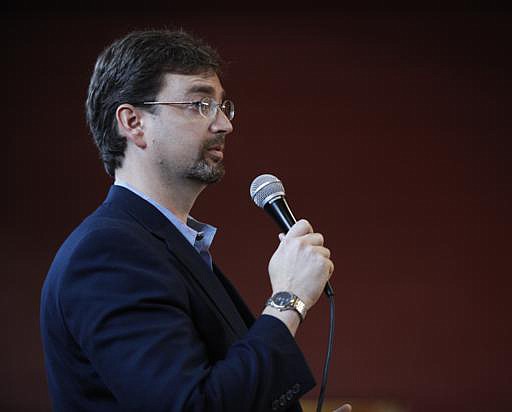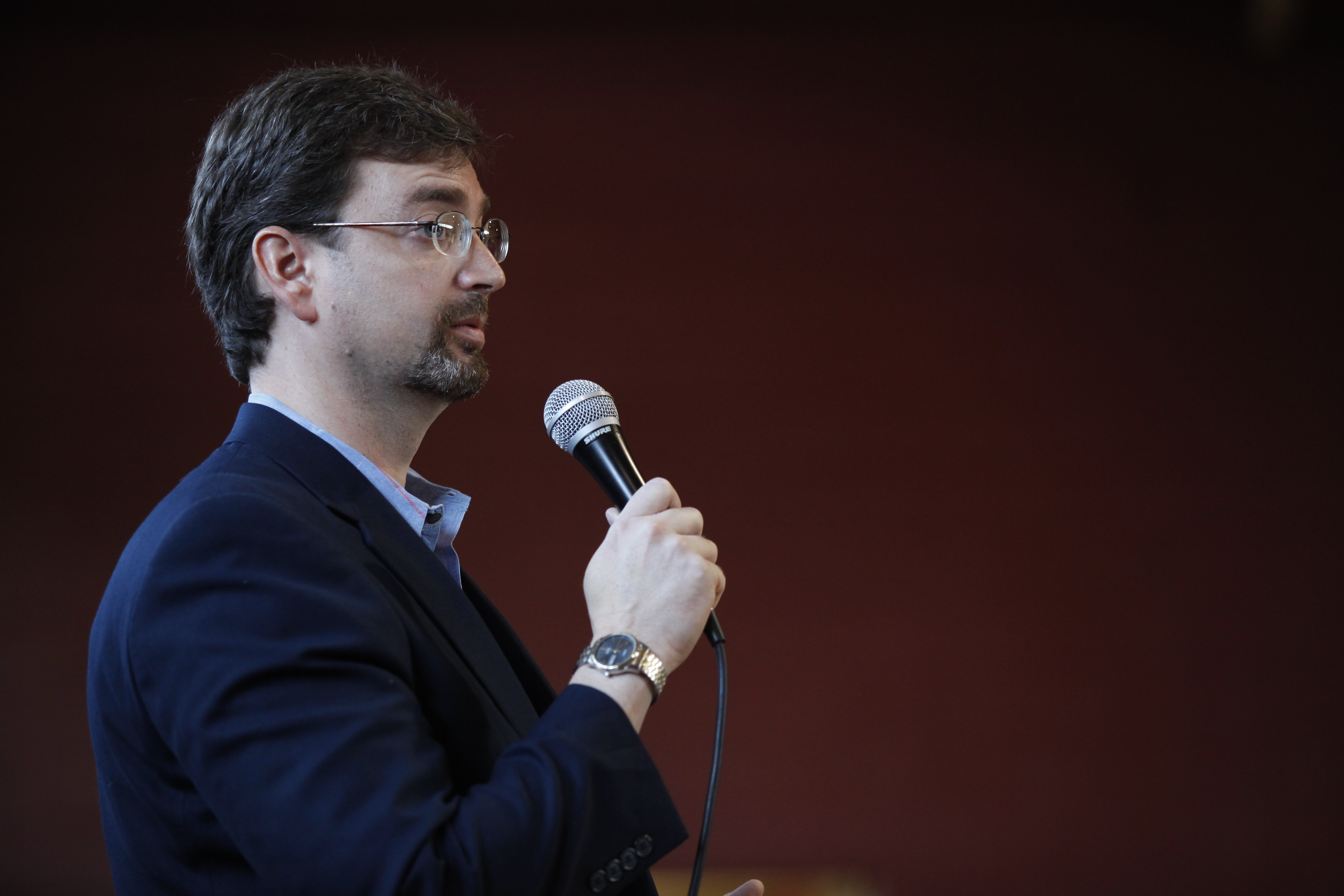Chattanooga's gang task force is working on more than 40 projects to suppress gang violence, using as laboratories everything from a doctor's office to a nature camp and tools ranging from books to jobs.
Less than a month after moving into his new office, gang task force coordinator Boyd Patterson is traveling across the region to make sure the projects are making progress.
He was in Apison on Wednesday to evaluate repair work needed to prepare a Boys and Girls Club campsite to host a nature camp for inner-city youth. And he participated in a legislative committee meeting Thursday in Nashville about criminal and civil gang laws that may be passed within three years.
"The message that everyone needs to understand is that Chattanooga has gang enforcement. We are seriously committed to enhancing suppression," Patterson said. "But we are just as serious about outreach."
About 25 percent of the task force's plan includes suppression strategies such as enforcing longer prison sentences for gang members and seeking a federal grant to hire a full-time criminal analyst. The other 75 percent of the task force's effort focuses on intervention and outreach.
The 40 projects include an application for a $3.3 million federal grant to pay for a program that helps youths get their GEDs and learn a trade while earning a stipend. The money also would pay for another full-time gang task force member and more outreach workers. The projects also encourage youths to become recording artists and call for doctors to promote literacy as part of health care.
"Literacy is huge in terms of prevention," Patterson said. "If we focused on literacy projects and kept that going for the next 10 years, we'd have a huge reduction in gangs."
Can it work?
Gang membership in Chattanooga increased from about 10 gangs with 150 members in 1997 to 44 gangs and 1,100 members documented in 2011, according to police.
Howard School senior Fantasy Evans said the gang task force's efforts could be effective.
"Kids need motivation to not be on the streets and to stay out of gangs," she said. "If adults would just sit and talk, kids can do better."
But the Rev. Leroy Griffith, president of the Westside Community Association, questions whether the programs will deter gang violence.
"I don't think those programs answer the question of why young men think they need to hang together as an offensive and defensive force to protect what they consider their territory," Griffith said. "Why is it that young people do not feel free and want other people to not feel free to be citizens of the broader community?"
Griffith suggested that young people are taking their lead from adults who celebrate militancy.
"We take pride in squadrons and platoons," he said. "We are taught in America to cope with our problems with units of hostility and not compassion and acceptance."
He said there should be more celebration of youths who work to influence their community positively.
Patterson agreed. He said the task force is highlighting young people's good works, but that doesn't get as much media attention as crime does.
Upcoming positive events include two Chattanooga recreation centers that will offer youths the opportunity to record their own music and have it heard on the radio this fall. Youths interested in recording should contact the prevention and youth development center after Labor Day to schedule a recording session. A youth council will meet every Tuesday this fall to decide the best music of the week based on the music and its message. All youths who compete will be asked to sign a contract agreeing to strive to have positive behavior.
Gang members aren't excluded from recording, said the city's recreation specialist, Mark Thomas.
The music competition is open to any students who sign a contract saying they are striving to be positive, he said.
Health and literacy
Task force members are collecting research that shows links between a person's health and his literacy level. The goal is to get doctors to encourage people to read as a means of improving their health, said Patterson.
Seventy percent of the people in jail are illiterate, he said.
"When mothers go to the doctor, we want the doctors to say, 'Here is your prescription and here is your "Cat In The Hat" book,'" said Patterson. "They learn to read, the kids learn to read and the number of crimes goes down."
Patterson said he expects to learn in September whether the $3.3 million in federal funding has been approved. The money would pay for a Youth Build program that teaches teenagers and young adults a construction or carpentry trade while they study to earn their GED and earn a stipend.
The goal is to show young people they can have hope and a bright future earning a living with legal employment.
"The cliché is true," said Patterson. "Nothing stops a bullet like a job."

